Newsletter 19 Sep 2022
Environment: What’s Up in GENeva | 19 – 25 September 2022

The Geneva Environment Network’s weekly newsletter includes the latest information on the global environmental agenda, main events, job vacancies, learning opportunities, as well as other useful resources and updates. Stay tuned and follow us also on Twitter, Facebook, LinkedIn, Youtube, or visit our website regularly for additional updates.
Environment and Toxics @ 51st Session of the Human Rights Council
Toxic substances and waste will be a central point for discussion this week at the HRC51. The Special Rapporteur on toxics and human rights (SR Toxics), Marcos Orellana, will present his report on mercury, small-scale gold mining and human rights at the Interactive Dialogue on 20 September. The report examines the human rights violations and environmental injustices, including the structural racism suffered by indigenous peoples, that result from mercury use in small-scale gold mining. It reviews the mechanisms of the Minamata Convention, identifying its strengths and shortcomings and providing recommendations to Parties and stakeholders. The report concludes with a call to ban global mercury trade, revoke allowable use provisions for small–scale gold mining and end the primary mining of mercury. The Special Rapporteur will also present the outcomes of his country visits to Mauritius (A/HRC/51/35/Add.1) and Italy (A/HRC/51/35/Add.2).
While the SR Toxics reports to the HRC and UNGA every fall, this is the moment to reflect on the challenges posed by the production, use and dissemination of toxics. The Geneva Toxic Free Talks provide such an opportunity, this year with a special 2-days event on 21-22 September to celebrate the 25th anniversary of the mandate. Find the full programme below and register for the sessions of your interest. Unless otherwise specified, the events are hosted in a hybrid format, allowing for in-person (Centre Administratif de Varembé) and online attendance (Webex).
- Wednesday 21 September | 25 years of Struggle to be Free from Toxic Threat
- Rights Holders facing Toxic Threats | 13:30 – 15:00 CEST
- HRC51 Side Event – SR Report on Mercury (OHCHR) | 15:30 – 17:00 CEST | Palais des Nations
- The Right not to be Exposed, a Contribution to a Toxic Free Planet | 18:15 – 19:45 CEST
- Reception for the 25 years of the mandate on toxics and human rights| 20:00 – 21:00 CEST | In-person only
- Thursday 22 September | Dialogues on Repairing Toxic Damages
- Getting Rid of Toxics: The Nonpolluting Alternatives | 13:30 – 15:00 CEST
- The Challenge of Warfare and War Zones’ Toxicity | 15:30 – 17:00 CEST
Last week, at the opening of the 51st session of the Human Rights Council (HRC51), the Acting High Commissioner, Nada Al-Nashif, in her statement clearly highlights the interlinkages between human rights and the environment. Recognizing the impulse to return to fossil fuels in the face of the rise in energy prices, the High Commissioner urges to consider its long-term consequences, and to commit to the high ambition needed to tackle the climate crisis, expressing sympathy with those affected by the devastating floods in Pakistan. As we observe growing restrictions on civic space and fundamental freedoms, as well as the sentencing of people on charges related to their human rights work and efforts to promote a clean, healthy, and sustainable environment, the Acting High Commissioner also called upon States, to continue upholding and protecting of the rights of environmental human rights defenders, by strengthening the National Protection System for Human Rights Defenders.
→ Our update on HRC51 provides the latest news and highlights the environmental-related activities of this session.
“Environment for Europe” Ministerial Process: 30 Years of Achievements
Ahead of the ninth “Environment for Europe” Ministerial Conference, to be held in Nicosia, Cyprus, from 5 to 7 October 2022, a High Level Briefing on the Environment for Europe Ministerial Conference will look at 30 years of achievement of this process, which started with the convening of the first Pan-European Conference of Ministers of the Environment at Dobříš Castle, in Czechoslovakia. The Conference aimed at establishing a new “European Environmental Space” after the end of the East-West division of Europe.
Three decades later, the High Level Briefing will remeber the visionary initiative and the achievements of the process, and discuss the points on the agenda at the forthcoming Ministerial Conference. → Register to join us in person at the Palais des Nations (Room XVII) or follow the event live on YouTube, 23 September at 12:45 CEST.
Energy Security, Resilience and Net Zero
This week, building resilient energy systems to address the ongoing global energy crisis is at the top of the agenda of the UNECE Sustainable Energy Week 2022, which will focus on “Energy Security, Resilience and Net Zero: Tangible Actions to Deliver a Sustainable Energy Future“. Representatives from UNECE’s 56 member States will discuss in these challenging times how to ensure energy for optimal social, economic, and environmental development. The Week will include specific discussions, recommendations and presentations of country initiatives and actions that build resiliency and ensure energy security and affordability in the United Nations Economic Commission for Europe region while meeting the objectives of the 2030 Agenda for Sustainable Development and the Paris Agreement, including net zero.
Happening Abroad: UN General Assembly
The 77th session of the UN General Assembly (UNGA) started last week in New York. In his open address to Member States, H.E. Amb. Csaba Kőrösi from Hungary, president of UNGA77 and former Director of Environmental Sustainability in the Office of the President of Hungary, called for avoiding a return to “business-as-usual”, pointing to the water crisis and recent extreme weather events as signs that achieving the Agenda 2030 for Sustainable Development, the Sendai Framework, the Paris Agreement and Our Common Agenda is more important than ever. This week the General Debate is taking place. Stay in tune with the recent updates from UNGA. The UN Environment Programme is leading environment-related activities during UNGA77. On 21 September, the Secretary-General and the President of Egypt will facilitate a Leaders’ Roundtable on Climate Action ahead of COP27.
While the 51st session of the Human Rights Council is still ongoing in Geneva, UNGA77 is also addressing human rights issues, with several reports being up for consideration of the Assembly. With regards to the environment, the following reports will be presented:
- The impact of toxic substances on the human rights of indigenous peoples | Special Rapporteur on the implications for human rights of the environmentally sound management and disposal of hazardous substances and wastes
- Protected areas and indigenous peoples’ rights: the obligations of States and international organizations | Special Rapporteur on the rights of indigenous peoples
- Human rights to safe drinking water and sanitation of people in impoverished rural areas | Special Rapporteur on the human rights to safe drinking water and sanitation
- Addressing the gender dimensions of trafficking in persons in the context of climate change, displacement, and disaster risk reduction | Special Rapporteur on trafficking in persons, especially women and children
- Promotion and protection of human rights in the context of climate change (A/77/226)
- The human right to a clean, healthy and sustainable environment: A catalyst for accelerated action to achieve the United Nations Sustainable Development Goals (A/77/284)
Also on the UNGA agenda the preparation for the start of the negotiations of the future treaty on plastic pollution:
- Norway and Rwanda, as co-chairs of the High Ambition Coalition to End Plastic Pollution are convening a side-event on 21 September at 14.00 CEST to discuss how to define an evidence-based vision and roadmap to End Plastic Pollution by 2040 and developing science-based solutions, insights and policy scenario to achieve it.
- On the same day at 16.00 CEST, the Ellen MacArthur Foundation and WWF International are hosting a side-event on “Global Plastics Treaty – High Ambition Business Coalition” at the Scandinavia House, convening leading companies and financial institutions who are committed to supporting negotiations.
- Ahead of the Transforming Education Summit held at UNGA, UNEP produced a new video of how young people can contributing to the fight against plastic pollution.
Climate Crisis | Latest on Science and Action
United in Science | A Clear Warning
While we just reached the end of one of the hottest summer on record, the multi-agency report “United in Science 2022” doubled down on the warnings about the current state of our climate. The report shows that greenhouse fossil fuel emissions continue to rise, and have now surpassed pre-pandemic levels despite the temporary drop due to lockdowns. Providing an overview of the most recent science related to climate change, its impacts and responses, the report sends a clear message: urgent action is needed to mitigate emissions and adapt to the changing climate. The chance that the annual mean temperature of at least one of the next 5 years will temporarily be 1.5°C higher than 1850-1900 average is now 50/50, and the risk of reaching irreversible “tipping points” is increasing. Meanwhile, countries’ pledges under the Paris Agreement for 2030 are seven times lower than the ambition we need to remain below the 1.5 °C target.
This year’s United in Science report shows climate impacts heading into uncharted territories of destruction. Yet each year we double-down on this fossil fuel addiction, even as the symptoms get rapidly worse. […] The current fossil fuel free-for-all must end now. It is a recipe for permanent climate chaos and suffering. – UN Secretary General Antonio Guterres
News from the Alps and Beyond | Glaciers Suffering
This summer took another toll at the Alpine glaciers with record high temperatures. Last week, the country mourned the Pizol Glacier and Schwarzbachfirn, where only rocks now remain. Closer to Geneva, the newly opened rock path splitting two glaciers in Les Diablerets is another proof of the dire impact of climate change on the Alpine ice cover. The retreat of the Alpine glaciers, often reffered to as the “water towers of Europe” has important socio-economic consequences for the region. The water from the glaciers is indeed essential for energy supply (from hydropower to cooling nuclear power plants), crop irrigation, water transport across Europe’s large rivers, biodiversity, and more.
In other parts of the world, glaciers have also massively suffered from the soaring temperatures, include in Chile’s Patagonia where glacier collapse has recently captured public attention. Early this month, a new study on the Thwaites Glacier, the so-called “Doomsday Glacier” in the Antarctic, reported on its rapid retreat. The erosion of the Thwaites Glacier, which is now at high risk of collapse, is expected to continue at this abnormally fast pace in the coming future with a significant impact on sea level rise.
Ahead of the International Film Festival on Glacier annual event in Geneva, bringing awareness to the public on the challenges faced by the world glaciers, the Association Mission Planète Terre is organizing an excursion to Aletsch Glacier, on 1-2 October, open to all. → Register online to join the excursion (limited places)
UN Annual Report | Climate Action in Review
The 2022 Report of the Secretary-General on the Work of the Organization published last week showcases the contribution of the UN to the 2030 Agenda for Sustainable Development and the Sustainable Development Goals. Among other priority areas, the report highlights the UN work to protect our planet, one of the key elements of “Our Common Agenda”. The UN continuously worked to convene leaders and stakeholders to strengthen climate ambition, notably through the 26th Climate Conference held in Glasgow, where Member States committed to recasting efforts to limit the temperature increase to 1.5°C above pre-industrial levels and to reach net zero emissions by mid-century. The UN family supported 6.2 million individuals to respond to threats of natural hazards, and to 41 countries to transition to an inclusive green economy. Convened by the UN, the Net-Zero Asset Owner Alliance leveraged $10 trillion in assets for the transition to a low-carbon economy.
Last week, the High-Level Expert Group on the Net-Zero Emissions Commitments of Non-State Entities met with the Secretary General in New York to present their progress. The experts’ work to assess the credibility of net zero claims is important. “If not robust and scientifically accurate, [these claims] are doing great harm by misleading investors, consumers and regulators”, underlined Rod Carr from New Zealand, one of the members of the expert groups. The group will provide its report to the Secretary General ahead of COP27 in Egypt in November.
Health Sector Call for Fossil Fuel Non-Proliferation Treaty
Health professionals are calling on States to establish a legally binding global plan to phase out fossil fuel use in order to protect lives of current and future generations. The World Health Organization is one of the 192 signatories of an open letter supporting a “Fossil Fuel Non-Proliferation Treaty“. The signatories emphasize the health risks associated with burning fossil fuels, which threaten both human and planetary health. “The modern addiction to fossil fuels is not just an act of environmental vandalism. From the health perspective, it is an act of self-sabotage”, said Tedros Adhanom Ghebreyesus, Director-General of the World Health Organization. Read more:
- Press release | International Health Organizations Call for Fossil Fuel Non-Proliferation Treaty To Protect Lives Of Current and Future Generations | 14 September 2022
- Why we need a fossil fuel non-proliferation treaty | Courtney Howard et al. | The Lancet | 14 September 2022
- World Health Organization backs Fossil Fuel Non-Proliferation Treaty | Canada National Observer | 15 September 2022
Global Climate Strike
A Global Climate Strike is planned on Friday 23 September 2022. The organizers demand policymakers and world leaders to prioritize #PeopleNotProfit and that Governments immediately work to provide Loss & Damage Finance to the communities most affected by the climate crisis. Strikers from western Switzerland is joining the main strike in Bern.
Climate Lawsuits
Climate litigation has expanded worldwide in past years, alleging that governments or private sector have not lived up to their promises to lower the risks of climate change or to set goals that are ambitious. Recent updates include:
- First climate lawsuit against Russian government launched over emissions | The Guardian | 13 September 2022
The first-ever climate lawsuit in Russia has been filed by a group of activists demanding that the the government take stronger action over the climate crisis.
- Des avocats romands du climat s’associent pour passer à l’offensive | ATS | 16 September 2022
En Suisse romande, les avocats pour le climat ont décidé de passer de la défense à l’attaque. Ils ont créé une association sans but lucratif dont l’objectif est de porter à la connaissance des tribunaux des affaires soulevant des questions de protection du climat.
Pollution Crisis | Latest Updates on SPP and Plastic
Science and Policy Panel
The first meeting of the ad hoc open-ended working group (OEWG 1) on a science-policy panel to contribute further to the sound management of chemicals and waste and to prevent pollution, convened pursuant to resolution 5/8 of the fifth session of the United Nations Environment Assembly will take place in two parts. The first part will take place in a hybrid format, on 6 October 2022 in Nairobi, Kenya. The second part of the session will be convened in person in Bangkok and is tentatively scheduled to be held early in the first quarter of 2023.
This science-policy panel on chemicals, waste and pollution prevention will complement the other independent, international, intergovernmental bodies for the two other crises of biodiversity loss – the Intergovernmental Science-Policy Platform on Biodiversity and Ecosystem Services (IPBES) – and climate change – the Intergovernmental Panel on Climate Change (IPCC).
The OEWG will include Governments and regional economic integration organizations, and will be open to observers from United Nations entities, relevant multilateral agreements, other international instruments and intergovernmental bodies, including those who are members of the Inter-Organization Programme for the Sound Management of Chemicals, and stakeholder representatives.
→ Register to join this major meeting through the online portal no later than 30 September 2022.
Towards Ending Plastic Pollution
The global and local agenda towards ending plastic pollution continued to make the headlines with growing attention. Recent news include:
- The website of the Intergovernmental Negotiating Committee to develop an Internationally legally binding instrument on plastic pollution, was released earlier this month, as preparations are ongoing for the first meeting of the Committee, to take place in Punta del Este, Uruguay, from 28 November to 2 December 2022, in hybrid format.
- The Canton of Geneva adopted a new law on solid waste, which sets a first objective to reduce non-recycled waste by 25% by 2025. Waste sorting will become mandatory for all businesses and households, while single-use plastic items in restaurants and take-out services will be banned from January 2025.
- A court in Louisiana revoked the permits issued by the Louisiana Department of Environmental Quality for the constructions of a new massive petrochemical complex. The facility would have become one of the world’s largest production site for plastics and one of the largest single sources of greenhouse gas emissions in the United States. The court ruled that the resulting toxic emissions would violate federal air standards and threaten public health, and the state agency had failed in its duty to protect the public from environmental harm by approving the project.
- A new study published earlier this month by The Ocean Cleanup provided new findings on the composition, origins, and age of plastic debris accumulating in the Great Pacific Garbage Patch. The analysis reveals that measures in the fishing and aquaculture sectors are vital, as plastic accumulating in the GPGP itself mostly comes from marine-based activities. However, land-based activities remain the main contributor of marine plastic pollution globally, thus highlighting the need for upstream measures to prevent plastic debris from entering the ocean.
→ Find out the latest news and more information about plastic pollution in our Plastics and the Environment series.
What (Else) Should I Read or Listen to Next?
- Egypt: Government Undermining Environmental Groups | Human Rights Watch | 12 September 2022
According to Human Rights Watch, the Egyptian government has severely curtailed environmental groups’ ability to carry out independent policy, advocacy, and field work essential to protecting the country’s natural environment. - La planète en surchauffe : le statut de l’eau | University of Geneva | 15 September 2022
En 2017, trois fleuves, en Inde et Nouvelle-Zélande, ont été reconnus comme des êtres vivants et dotés ainsi d’une personnalité juridique. Quels en sont les enjeux et les conséquences ? Dans quelle mesure les préoccupations environnementales conditionnent-elles ce nouveau statut ?
Events
See all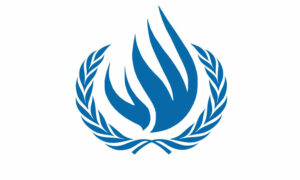
Body Meeting
51st Session of the Human Rights Council | HRC51
12 Sep – 07 Oct 2022
Palais des Nations
HRC


Body Meeting
Informal Dialogue on Plastics Pollution and Environmentally Sustainable Plastics Trade (IDP)
19 – 20 Sep 2022
WTO
WTO

Afterwork
PechaKuchaNight @ Cité Internationale
19 Sep 2022 19:30 – 22:30
Cité Internationale, Geneva
MSF

Virtual
Environment, climate, conflict, and peacebuilding (ECCP) | Monthly Meeting
20 Sep 2022 14:00 – 15:00
Online
Geneva Peacebuilding Platform

Exhibition
The Climate Champions Invention Challenge Exhibition
21 – 30 Sep 2022
Palais des Nations
EU, CRIN

Conference
Valuing natural capital conference 2022
21 Sep 2022 09:00
Online & Geneva
Geneva Macro Labs
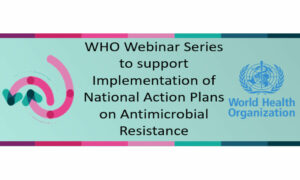
Virtual
Infection prevention and antimicrobial stewardship – the role of nurses in preventing AMR
21 Sep 2022 10:30
Online | Zoom
WHO

Conference
Rights Holders Facing Toxic Threats | 25 Years of Struggle to be Free from Toxic Threat | Geneva Toxic Free Talks
21 Sep 2022 13:30 – 15:00
Centre Administratif de Varembé & Online | Webex
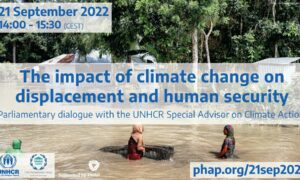
Virtual
The impact of climate change on displacement and human security
21 Sep 2022 14:00 – 15:30
Online
UNHCR, IPU, PHAP

Conference
HRC51 Side Event | Mercury, Small-Scale Gold Mining and Human Rights
21 Sep 2022 16:00 – 17:00
Palais des Nations | Room XXV & Online | Webex

Conference
The Right Not to be Exposed, a Contribution to a Toxic Free Planet | 25 Years of Struggle to be Free from Toxic Threat | Geneva Toxic Free Talks
21 Sep 2022 18:15 – 19:45
Centre Administratif de Varembé & Online | Webex

Conference
Getting Rid of Toxics: The Nonpolluting Alternatives | Repairing Toxic Damages | Geneva Toxic Free Talks
22 Sep 2022 13:30 – 15:00
Centre Administratif de Varembé & Online | Webex
Earthjustice, GEN

Virtual
GNEOG Webinar Series 2022 | Strengthening national oil spill preparedness and response in environmentally sensitive areas
22 Sep 2022 13:30 – 15:00
Online
GNEOG

Conference
The Challenge of Warfare and War Zones’ Toxicity | Repairing Toxic Damages | Geneva Toxic Free Talks
22 Sep 2022 15:30 – 17:00
Centre Administratif de Varembé & Online | Webex

Conference
The Responsibility of Private Actors: the Arica Case Study | Reparing Toxic Damages | Geneva Toxic Free Talks
22 Sep 2022 18:30 – 20:00
Centre Administratif de Varembé & Online | Webex

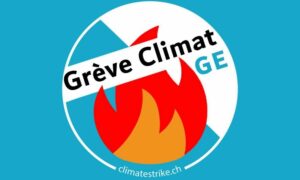
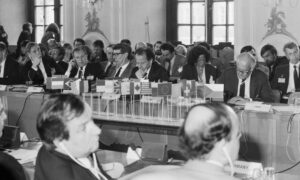
Conference
High Level Briefing on the Environment for Europe Ministerial Conference | 30 Years of Achievements
23 Sep 2022 12:45 – 14:00
Palais des Nations | Room XVII & Online | Webex
Czech Republic, UNECE, GEN

Jobs
See all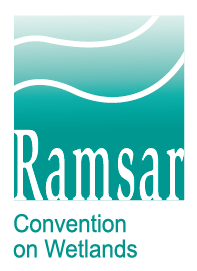
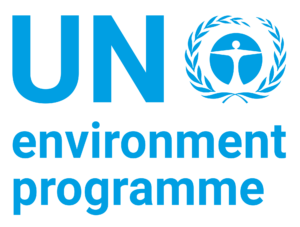
Consultant
GEF Chemical and Waste (planetGold) Consultant
20 Sep 2022
UNEP Chemicals and Health Branch
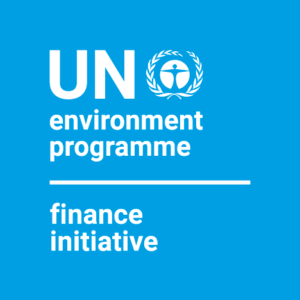
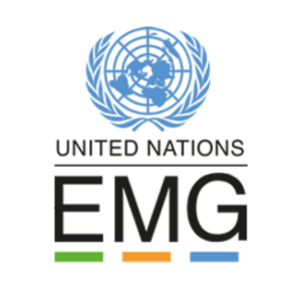
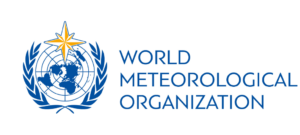

Consultant
UNEP GEF Chemical and Waste (MIA &NAP) Consultant
20 Sep 2022
UNEP Chemicals and Health Branch


Consultant
Programme Associate for the 2022-2023 Climate Risk Programme, Climate Tool Working Group
21 Sep 2022
UNEP FI

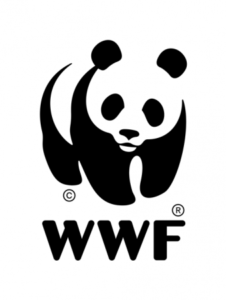



Consultant
Consultancy for Facilitation and Planning Services, Ramsar Strategic Plan
21 Sep 2022
Ramsar Convention



Consultant
Consultancy | Review of the IUCN Green List of Protected and Conserved Areas
23 Sep 2022
IUCN

Learning
See all
Online Course
International Water Law and the Law of Transboundary Aquifers
10 Oct – 11 Dec 2022
Geneva Water Hub

Nature-based Solutions – Professional Certificate on IUCN Global Standard™
11 Oct – 18 Nov 2022
IUCN



